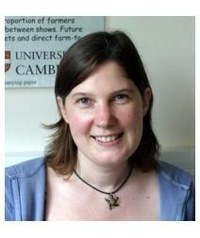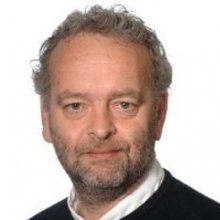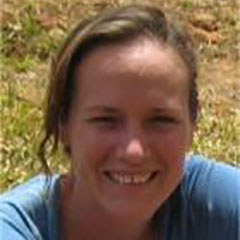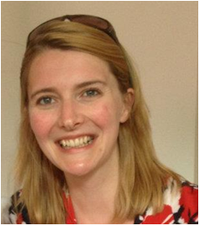Mathematical Models for Infectious Disease Dynamics
18 February–1 March 2019
Wellcome Genome Campus, UK
The latest quantitative techniques for modelling infectious disease dynamics and control in humans, animals or plants.
Summary
The last two decades has seen a huge rise in the use of mathematical modelling across all areas of infectious disease research, from microbiology and pathogen evolution, through to large-scale epidemiology and public health. Professionals in these fields are now exposed to a wide range of models, often without receiving appropriate training.
What will I learn on the course?
This intensive two-week course combines lectures, discussions and seminars, with a strong emphasis on building practical skills using the programming software packages R and RStudio. This follows from a series of in-depth practical sessions that help to facilitate understanding of the underlying theory by putting these approaches into practice.
The programme is aimed at any life scientist, public health, medical or veterinary professional with an interest in quantitative approaches to infectious disease dynamics and control in humans, animals or plants. The basic concepts of the course are applied largely to human infectious disease systems, with reference to more general applications in wildlife, livestock and plant systems.
The course starts with an introduction to computer programming from first principles, but participants who are not familiar with R are encouraged to learn the language basics (data analysis, vector manipulation and graphics) before attending.
Programme
The programme will cover introductory and advanced concepts in mathematical modelling of infectious diseases, including:
- Mathematical review (calculus, probability, etc.)
- Population dynamics
- Deterministic and stochastic models
- Modelling structured populations: age-structured, spatial and network models
- Applied programming with R
- Statistical estimation of models
- Computer-based simulations
Learning outcomes:
After attending this course, participants will be able to:
- Design, implement and estimate simple epidemic models
- Better appreciate the value and limits of mathematical models in their own field
- More fully understand and apply knowledge from scientific articles that include mathematical models
- Explore the behaviour of simple models
- Engage more effectively in collaborations with mathematical modellers
Instructors and speakers
Course instructors

Andrew Conlan
University of Cambridge, Department of Veterinary Medicine, UK

Cerian Webb
University of Cambridge, Department of Plant Sciences, UK

TJ McKinley
College of Engineering, Mathematics and Physical Sciences, University of Exeter, UK

Nik Cunniffe
University of Cambridge, Department of Plant Sciences, UK

Katy Gaythorpe
Department of Infectious Disease Epidemiology, Imperial College London, UK
Guest speakers

Graham Medley
London School of Hygiene and Tropical Medicine, UK

Petra Klepac
London School of Hygiene and Tropical Medicine, UK

Katie Hampson
Boyd Orr Centre for Population and Ecosystem Health, University of Glasgow, UK

Caroline Trotter
University of Cambridge, UK

James Wood
University of Cambridge, UK
How to apply
Prerequisites
Applicants should be life scientists, public health, medical or veterinary professionals with an interest in quantitative approaches to infectious disease dynamics and control in humans, animals or plants.
Please note: The course is not aimed at scientists with extensive experience in modelling or with a strongly theoretical background. Applicants whose research project involves the use of models or interactions with modellers will be selected in priority.
How to Apply
Please complete the online application form. Places are limited and will be awarded on merit. If you have any problems with the online application process, please contact us.
Please note: Applications must be supported by a recommendation from a scientific or clinical sponsor (e.g. supervisor, line manager or head of department). A request for a supporting statement will be sent to your nominated sponsor automatically during the application process. Applicants must ensure that their sponsor provides this supporting statement by the application deadline. Applications without a supporting statement cannot be considered.
Travel visas
Successful applicants will be provided with a support letter for their visa application, if required.
Please visit the following websites for further information on visiting the UK:
Cost
| Cost | Accommodation / meals | |
| *Course fee | £1120 | This is a residential course and the fee includes all accommodation and meals. |
*The course fee is subsidised and applies to non-commercial applicants. Please contact us for the commercial fee.
Bursaries
Limited bursaries are available (up to 50% reduction on the course fee) and are awarded on merit. If you would like to apply for a bursary, please complete the bursary section of the online application form.
Where there are many bursary applications, the selection committee may issue smaller amounts.
Bursaries can be applied for as part of the course application form. Applicants will be notified of a bursary award along with their place on the course, usually within one month of the application deadline. The decision of the selection committee is final.
Please note that both the applicant and sponsor are required to provide a justification for the bursary as part of the application.
Additional funding opportunities
Visit our support page for additional financial support currently available.
Accommodation services phishing scam – please be vigilant. More information.
Testimonials
Feedback from the 2018 course:
“The course was excellent – it covered a lot of material but I was expecting (and needed!) that. There was a good balance of lectures and practicals and the majority of the topics were very relevant to my study.”
“I am an epidemiology PhD student currently hoping to apply network modelling to my current project so that was very useful. All the other modules were extremely useful considering the fact that I plan to grow my epidemiological modelling skills for future assignments”.
“Extremely well organised course.”
“Thanks to the organisers and teaching staff for a fantastic two weeks. Learnt a lot and really enjoyed it.”
“I am glad I attended the course. Knowledge very well presented and useful for my current PhD project.”
“Thank you! It was a great course.”
“Thank you so much to everyone involved, you have all been incredibly helpful and have put on a fantastic course. I will certainly recommend it to colleagues.”

